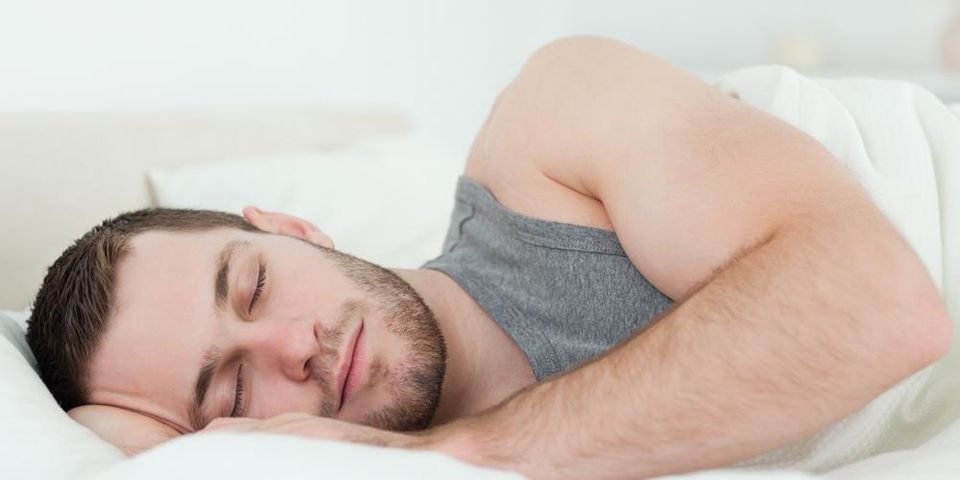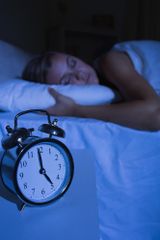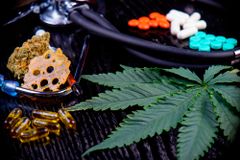Sweet Dreams: 5 Ways Medical Marijuana Promotes Better Sleep

In July 2014, Urgent & Primary Care’s home state of New York became the 23rd state to legalize medical marijuana. However, these family care physicians explain, there are caveats that all locals should be aware of. Namely, the law only allows liquid, oil, or capsule variations of the drugs. Smoking and edible products are prohibited. Additionally, this state-wide legislation is only available to patients with severe, debilitating, or life-threatening conditions such as amyotrophic lateral sclerosis (ALS), epilepsy, HIV infection, or AIDS.
For these individuals, though, medical marijuana has made a world of difference. Namely, it reduces or even eliminates the adverse side effects of these diseases and their treatment. For example, many medications cause insomnia or restlessness, leaving patients groggy and exhausted. When administered under the careful guidance of a medical professional, however, this drug can improve overall sleep quality in many ways.
5 Ways Medical Marijuana Improves Sleep
1. Reduces the Time Needed to Fall Asleep
 Cannabis contains a chemical compound called tetrahydrocannabinol, more commonly known as THC. In small doses, THC acts as a sedative, quelling stress and relaxing the body. As a result, many patients find that the drug helps them drift off faster than they do without it.
Cannabis contains a chemical compound called tetrahydrocannabinol, more commonly known as THC. In small doses, THC acts as a sedative, quelling stress and relaxing the body. As a result, many patients find that the drug helps them drift off faster than they do without it.
2. Lessens Nighttime Restlessness
Similarly, those who use the state-approved liquid, oil, and capsule versions of the drug typically wake up less throughout the night. This effect allows patients to gain a full night’s rest, despite their other ailments.
3. Increases Stage 3 Sleep
Of course, what’s a full night’s sleep is the sleep itself is poor quality? Fortunately, medical marijuana helps with this issue too. According to these family care physicians as well as other researchers, this drug increases stage three sleep. This restorative cycle consists of extremely slow brain waves, earning it the title of “slow-wave” or “deep” sleep.
4. Decreases REM Sleep
In contrast to stage three, rapid eye movement (REM) is a stage of sleep in which the brain is most active. It is here that dreaming most often occurs. For some patients, missing out on dreams might seem like a downfall. For others, such as those with PTSD or stressful nightmares because of their illness, it’s an advantage.
5. Complements Natural Sleep Remedies
 In addition to THC, this drug also contains terpenes or fragrant oils that give different strains their distinct smell. Such compounds are also in chamomile, lavender, and other herbs used in “sleepy time” aromatherapy. Thus, when medical marijuana and these natural remedies are used together, they have a synergistic effect that further improves the patient’s sleep quality.
In addition to THC, this drug also contains terpenes or fragrant oils that give different strains their distinct smell. Such compounds are also in chamomile, lavender, and other herbs used in “sleepy time” aromatherapy. Thus, when medical marijuana and these natural remedies are used together, they have a synergistic effect that further improves the patient’s sleep quality.
If you suffer from one of the previously mentioned conditions and have trouble sleeping, medical marijuana may be a viable solution for you. But first, you should consult your primary care doctor to receive a formal diagnosis as well as the proper documentation. Before applying for your medical marijuana card, you must also obtain a written certification from a health care professional licensed to recommend marijuana in the state of New York, such as Albany’s Urgent & Primary Care.
To schedule your medical marijuana consultation, call Urgent & Primary Care at (518) 463-8262 today. To meet their experienced family care physicians or see the additional services they provide, visit their website.
About the Business
Have a question? Ask the experts!
Send your question

